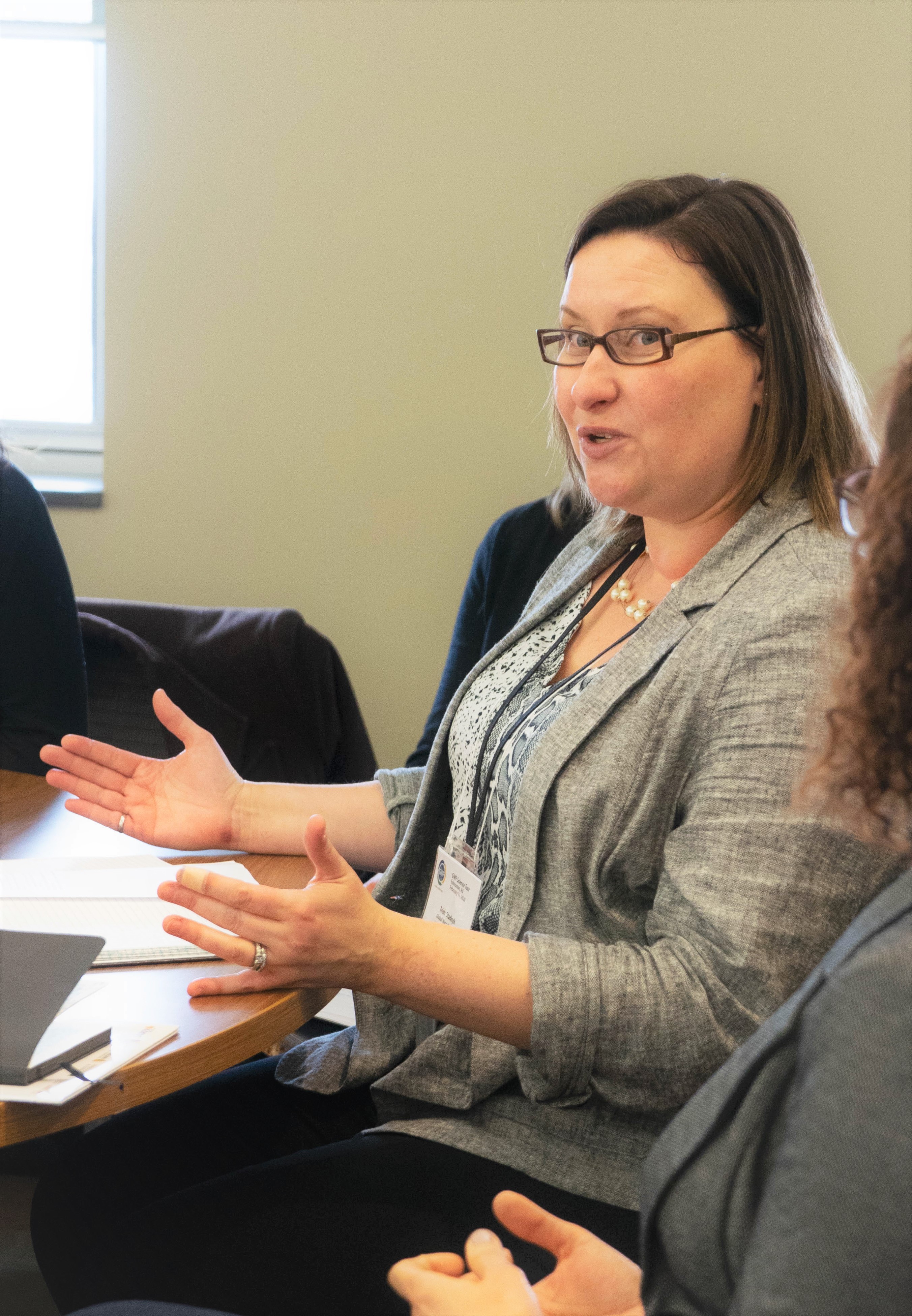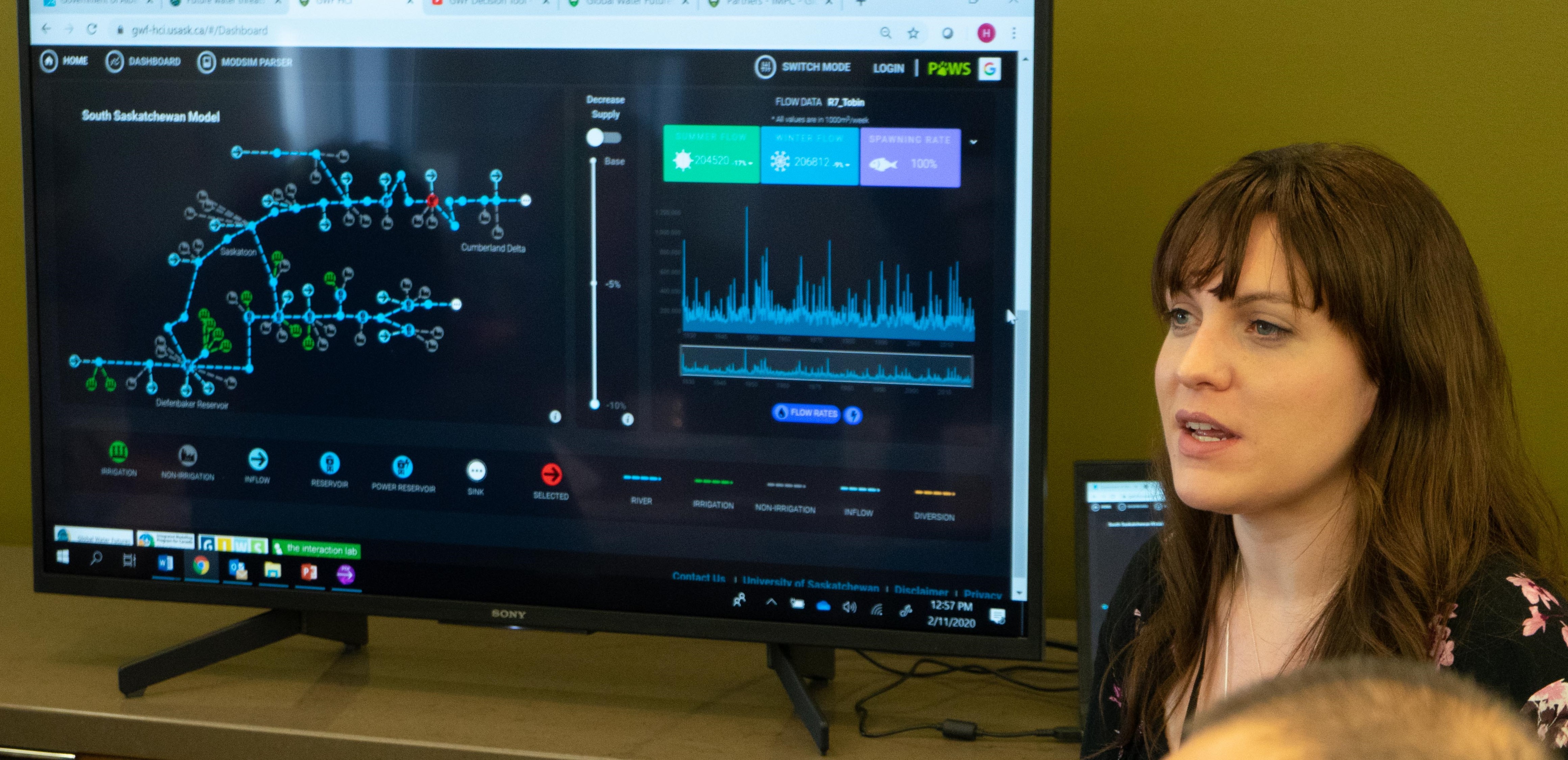Taking Water Science on Tour to Edmonton
IMPC team met prominent members from Alberta Environment and Parks, Alberta Agriculture and Forestry, Canadian Forest Services, TransAlta (and more) in a Science Tour meeting organized by the Global Water Futures program
By Laila BalkhiOn February 11, 2020, a team of three from the Integrated Modelling Program of Canada (IMPC) took project research on a tour to Edmonton to meet provincial government representatives, industry leaders and eager academics from other institutes. Organized by the Global Water Futures program, this meeting was the first stop of a Pan-Canadian Science Tour series meant to connect knowledge-producers and knowledge-users across Canada.
The Director of Global Water Futures program, Dr. John Pomeroy, and Chief Scientist at Albert Environment and Parks, Dr. Fred Wrona, kicked off the meeting by welcoming the GWF team and hailing the program’s effort in bringing knowledge from experts to decision-makers. Six brief presentations followed from different GWF projects, including IMPC.
Dr. Trish Stadnyk presented on behalf of the IMPC team, providing updates on research work with implications for Alberta. Project presentations also linked research outcomes to Alberta’s 5-year Science Strategy to demonstrate how each project’s research is relevant in helping jurisdictions address complex environmental challenges.

Dr. Trish Stadnyk leading the IMPC Table Discussions
After a brief coffee break, the projects broke out into discussion tables to allow for open-ended and in-depth conversations. The IMPC discussion table, led by Dr. Stadnyk, appeared to be one of the busiest ones. The IMPC team met prominent members from Alberta Environment and Parks, Alberta Agriculture and Forestry, Canadian Forest Services, TransAlta (and more).
Discussion participants brought up a wide array of questions ranging from broad ones about researchers and stakeholders, to more specific technical questions about models and modelling techniques or procedures in use. For example, some attendees were interested in learning more about IMPC research on water quality and sediment changes, high resolution modelling work on climate changes, and even applications of climate research to assessing fire likelihood and risk.
IMPC Project Manager, Hayley Carlson, also demonstrated the pilot version of the decision-support tool on a monitor set up at the IMPC table. Attendees made several positive remarks about the online tool as well and had a lot of interest and curiosity around modelling approaches behind the scenes. Several attendees inquired about when the tool will be operational and how it can be made relevant in a policy-making and operations context.

Hayley Carlson demonstrating the IMPC Decision Support System demo
Dr. Stadnyk and Ms. Carlson responded to these questions and particularly emphasized that IMPC is now at the stage of looking for feedback and supporting data from stakeholders to make this tool as efficient, accurate, and useful as possible to user communities.
The value of this meeting for IMPC will undeniably be in continued and useful engagement with stakeholders in Alberta. How this rolls out in the long run remains to be seen. But it is now three weeks and counting since the meeting, and IMPC has successfully included an Alberta Environment and Parks representative in its model intercomparison research meetings; responded to several Weather Research Forecast (WRF) data requests; and followed up on requests for more information about specific research within the project.
And although only three members of the much larger IMPC team attended the meeting in person, preparation for the meeting consisted of coordinating with several IMPC investigators to explore potential avenues for future collaboration with stakeholders in Alberta.
For example, Dr. Karl-Erich Lindenschmidt, who leads water quality modelling in IMPC, is interested in utilizing the connections made at the meeting for potential collaboration on modelling transport of contaminants across the Alberta-Northwestern Territories boundary. The water management modelling team is hoping to connect with Alberta Environment and Parks to request for updated natural river flow data for South Saskatchewan River Basin and get recurrent feedback on research design.
IMPC’s hope is to keep up this momentum around user engagement through the next year and beyond.
The Integrated Modelling Program for Canada (IMPC) is a transdisciplinary research program bringing together scientists and stakeholders from six Canadian universities, twelve government agencies and more than ten end-user communities. This team provides a unique expertise that integrates atmospheric science, hydrology and ecology with social science, computer science, economics, and water resource engineering. Explore IMPC Website to learn more.
IMPC is one of the 39 Global Water Futures (GWF) program, which is a University of Saskatchewan-led research program that supports leading-edge water science and aims to develop innovative decision-making tools to manage water futures in Canada and other cold regions. To learn more about the Global Water Futures program, follow this link.

